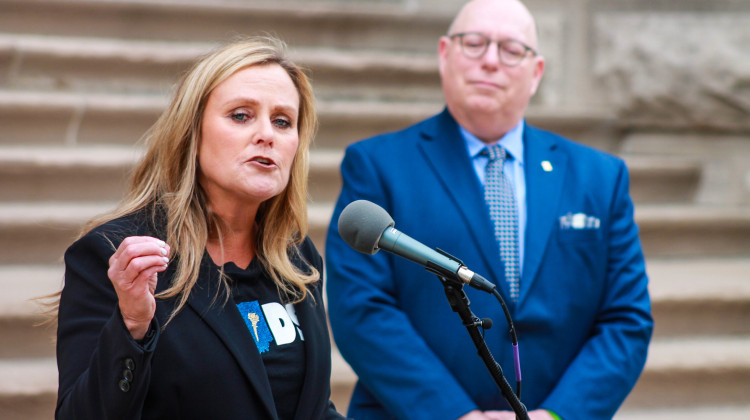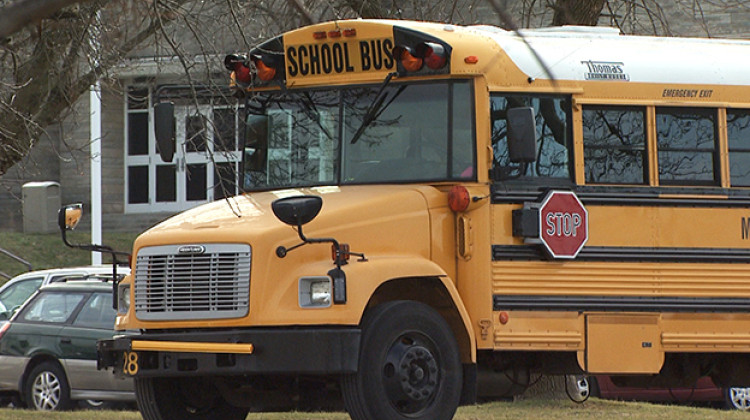
U.S. Congressman Todd Rokita’s legislation, the Improving Child Nutrition and Education Act, would restrict the number of schools able to provide free lunch to any and all students.
USDANEW ALBANY, Ind. — U.S. Congressman Todd Rokita, R-Indiana, argued the government should cut back on free school lunch programs when he attended Wednesday’s State Board of Education Meeting.
Rep. Rokita, former Indiana secretary of state, proposed federal legislation last month that would tighten eligibility for free school lunch programs across the country. He says funds saved from reducing the number of federal school-wide lunch programs could be used for breakfast or summer meal programs instead.
“I can do what I swore I would do … and that is not add to our national debt,” Rokita told board members.
A 2010 law allows a school to serve free lunches to all students if at least 40 percent of students participate in government assistance programs. Supporters of the law say it cuts overhead costs, with the idea that it costs more to determine who qualifies for the program than it does to make lunch free for all students, regardless of income.
But Rokita says that means the program may be used by families who don’t need it.
“When did we get to a point in this country when families aren’t responsible for feeding their children?” Rokita said. “And instead the government is?”
Rokita’s legislation, the Improving Child Nutrition and Education Act, would restrict the number of schools able to provide free lunch to any and all students. It would move the qualification threshold from 40 percent able to qualify for free- or reduced-lunch to 60 percent. The Congressional Budget Office estimates the measure could save taxpayers around one billion dollars over the course of ten years.
If the bill is passed, 120 Indiana schools serving 60,000 students would no longer be eligible to participate in the federal school-wide lunch program, according to the Center on Budget and Policy Priorities.
“If you’re not in poverty but you still rely on these meals, the question is ‘Why?,’” Rokita said. “Not ‘Why’s the government have to do it?’”
State Board of Education member Vince Bertram said there may be additional things to consider. He said families or students may be hesitant to identify themselves as living in poverty.
“Just the social impact of going through the lunch line … is a real challenge,” said Bertram.
And school administrators have expressed concerns that some students would rather go hungry rather than be subjected to social stigmas.
Studies show that’s a big deal. Children without enough to eat are more likely to have developmental delays, worse memories and difficulty acquiring social and academic skills.
The Repubican House Education and Workforce Committee, which Rokita chairs, has pushed the bill forward to be considered by the full House. The legislation would also roll back some of the nutrition guidelines for promoted by Michele Obama.
Correction: An earlier version of this article said that schools qualify for free school-wide lunches if a certain percentage of students qualify for free- or reduced-lunch. The post has been updated to reflect that schools qualify if certain percentages of students participate in government assistance programs. We regret the error.
 DONATE
DONATE








 View More Programs
View More Programs


 Support WFYI. We can't do it without you.
Support WFYI. We can't do it without you.